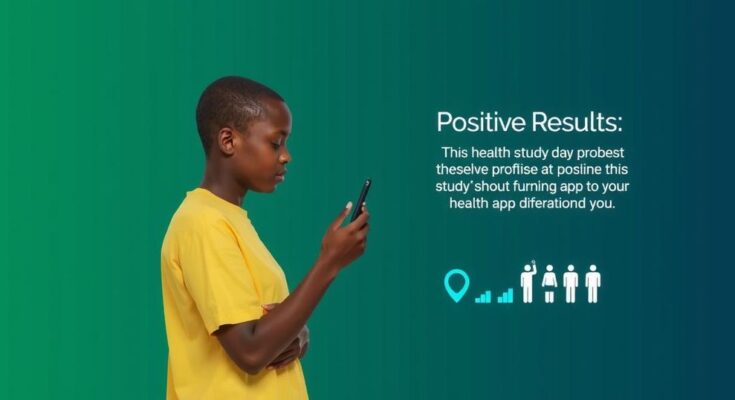The WHO Skin NTDs App was evaluated in Kenya, indicating an 80% average sensitivity for diagnosing skin-related neglected tropical diseases using AI algorithms. The study engaged 40 health workers and gathered positive feedback, suggesting the App enhances trust and empowers users. WHO plans to expand this research to additional countries in the near future.
On November 25, 2024, the World Health Organization (WHO) convened with Kenya’s Ministry of Health to assess preliminary findings from the inaugural real-world evaluation of the WHO Skin NTDs App. This study, conducted in collaboration with entities such as TDR and the Kenya Medical Research Institute, evaluated two artificial intelligence-driven algorithms aimed at enhancing the diagnosis of neglected tropical diseases (NTDs) affecting the skin.
The study, conducted across five Kenyan counties, involved 40 frontline healthcare workers who collected images of skin lesions from 605 patients between June and October 2024. The algorithms under review included one by Universal Doctor designed for 12 specific skin NTDs and another by Belle.ai, which addresses 24 common skin conditions at WHO’s request.
Skin diseases significantly affect public health in Kenya, with estimates suggesting they are responsible for 10-30% of outpatient visits. Dermatologist shortages exacerbate this issue, prompting the need for technological solutions. The WHO Skin NTDs App aids healthcare personnel in improving the management of these conditions, as emphasized by Dr. Joyce Onsongo, WHO NTD officer in Kenya.
The preliminary analysis of the algorithms indicated an average sensitivity of about 80% in relation to diagnoses made by board-certified dermatologists. Dr. José Antonio Ruiz Postigo from WHO underscored the achievements of this study, commendably noting its rapid execution in remote regions.
Feedback collected from the participating health workers revealed a favorable reception of the App. An assessment using the User Version of the Mobile Application Rating Scale (uMARS) resulted in a mean score of 3.82 out of 5, and focus group discussions yielded a score of 8 out of 10.
According to Professor Carme Carrion, the Principal Investigator from the Open University of Catalonia, healthcare professionals expressed heightened self-esteem and gained trust from peers and patients in assessing skin lesions. Additionally, Dr. Ruth Nyangacha, a research scientist in KEMRI, noted that the App was perceived as a partner in diagnosis, simultaneously aiding in destigmatizing patients afflicted by skin NTDs.
Moving forward, WHO aims to undertake a thorough analysis of the results to strategize subsequent steps and plans to extend this study to Brazil, Cameroon, Côte d’Ivoire, and India within the next two years to examine the performance of these algorithms against varied epidemiological backgrounds.
The World Health Organization’s initiative to develop the Skin NTDs App stems from an urgent need to address public health challenges in sub-Saharan Africa, particularly regarding skin-related neglected tropical diseases (NTDs). Given the high prevalence of skin diseases, which significantly encumber healthcare resources, and the scarcity of dermatologists, the integration of advanced technology such as artificial intelligence into frontline healthcare can enhance the diagnostic capabilities of health workers. With a collaborative effort involving various academic and health institutions, this study is pioneering in its approach to evaluate AI’s effectiveness in a real-world setting, providing a model for future research and interventions.
The preliminary results from the WHO Skin NTDs App study in Kenya present a promising advancement in the management of skin NTDs using artificial intelligence. With a substantial engagement of frontline healthcare workers and encouraging feedback regarding the App’s utility, WHO’s plans to replicate this model in other countries highlight a commitment to improving healthcare outcomes globally.
Original Source: www.who.int




